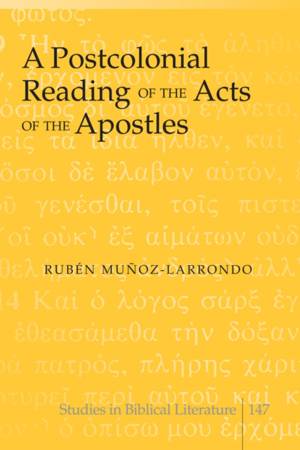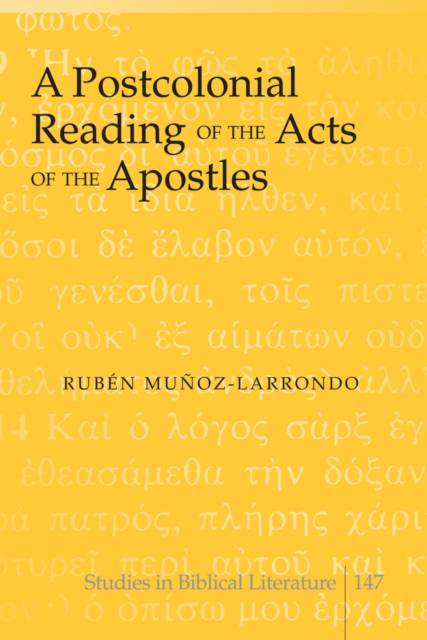
- Retrait gratuit dans votre magasin Club
- 7.000.000 titres dans notre catalogue
- Payer en toute sécurité
- Toujours un magasin près de chez vous
- Retrait gratuit dans votre magasin Club
- 7.000.0000 titres dans notre catalogue
- Payer en toute sécurité
- Toujours un magasin près de chez vous
Description
A Postcolonial Reading of the Acts of the Apostles explores Acts, with its twofold motif of self-exaltation and self-attribution of divine prerogatives, from the viewpoint of postcolonial criticism. The Lukan community struggles to legitimize itself, in hybrid fashion, before two structures of powers or hegemonies: the Roman Empire and its system of imperial worship and the defining institutions of Judaism.
Acts emerges as a hidden transcript within the system of imperial worship in Rome - pointing to the fate of any power that would usurp divine prerogatives and claim allegiance to any Lord other than God. The representation by mimicry of Roman worship in Acts, based on supremacy and hegemony and exercised by way of imperial decrees, the erection of temples, neokoroi, religious customs, and so forth, is analyzed. Moreover, the representation of Roman officers is examined observing that Luke portrays them as full of fear but also as liars, seekers of bribes, and, more importantly, in need of salvation and peace.
Furthermore, the Lukan community in Acts appears as a Jewish Christian group within the development of a plurality of various forms of Judaism and within the Jesus movement. They see themselves as the legitimate heirs of the correct interpretation of the Jewish Scriptures. They do not deny their ethnicity, but they do proclaim the eschatological/apocalyptic end of the institutions that define Judaism (the kingship and the Sanhedrin as a temple establishment) as well as the restoration of the Kingdom of God, rather than of Israel, with a full acceptance and inclusion of the Gentiles.
Acts emerges as a hidden transcript within the system of imperial worship in Rome - pointing to the fate of any power that would usurp divine prerogatives and claim allegiance to any Lord other than God. The representation by mimicry of Roman worship in Acts, based on supremacy and hegemony and exercised by way of imperial decrees, the erection of temples, neokoroi, religious customs, and so forth, is analyzed. Moreover, the representation of Roman officers is examined observing that Luke portrays them as full of fear but also as liars, seekers of bribes, and, more importantly, in need of salvation and peace.
Furthermore, the Lukan community in Acts appears as a Jewish Christian group within the development of a plurality of various forms of Judaism and within the Jesus movement. They see themselves as the legitimate heirs of the correct interpretation of the Jewish Scriptures. They do not deny their ethnicity, but they do proclaim the eschatological/apocalyptic end of the institutions that define Judaism (the kingship and the Sanhedrin as a temple establishment) as well as the restoration of the Kingdom of God, rather than of Israel, with a full acceptance and inclusion of the Gentiles.
Spécifications
Parties prenantes
- Auteur(s) :
- Editeur:
Contenu
- Nombre de pages :
- 249
- Langue:
- Anglais
- Collection :
- Tome:
- n° 147
Caractéristiques
- EAN:
- 9781433116087
- Date de parution :
- 21-12-11
- Format:
- Livre relié
- Format numérique:
- Genaaid
- Dimensions :
- 150 mm x 226 mm
- Poids :
- 476 g

Les avis
Nous publions uniquement les avis qui respectent les conditions requises. Consultez nos conditions pour les avis.






